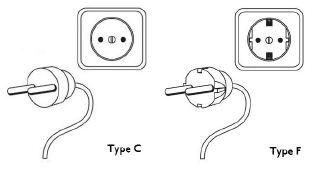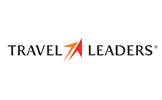ROMANIA

Fun Facts From Globus Tours
- Romania’s Danube Delta is a World Heritage Site and is the second-largest delta in the whole of Europe.
- Irish author Bram Stoker based his horror novel Dracula on the 15th-century Walachian Prince Vlad Dracula, son of Vlad Dracul of Romania. The Bran Castle, associated with Vlad Dracula is Romania’s most popular tourist attraction.
- The popular American sandwich ingredient Pastrami has its origins in Romania.
The four ethnic groups—Hungarian, German, Romanian, and Romanian Gypsy—have always been very proud of Romania, a country of traditions. Most of the population of 19.6 million are descendants of the ancient Dacians. Romania shares borders with Ukraine, Moldavia, Bulgaria, Serbia, and Hungary. Its territory covers just over 92,000 square miles, and the climate is temperate with four distinct seasons. The Carpathian mountains form the heart of the country, where indigenous Chamois, and 60% of the European brown bear population live. Southern Romania consists of the flat Danube plain, where the capital, Bucharest is located. Further north is mountainous Transylvania, a beautifully forested area famous as Dracula country! Filmed in Romania, the movie Cold Mountain with Nicole Kidman was set against the magnificent scenic backdrop of its hills and mountains.
Once a monarchy, then under Communist rule from 1948 to 1989, Romania is now a parliamentary democracy, and member of the European Union since 2007. Residents speak a Romance language derived mainly from Latin, and the main religious denomination is Romanian Christian Orthodox. Famous citizens include poet Mihai Eminescu, composer George Enescu, former World No.1 tennis player Ilie “Nasty” Nãstase, and gymnast Nadia Elena Comăneci who, at the age of 14 became the first gymnast in Olympic history to be awarded the perfect score of 10.0 at the 1976 Summer Olympics in Montreal, going on to repeat the incredible achievement 6 times and win 3 gold medals.
The Palace of the Parliament in Romania’s capital Bucharest is the second largest administrative building in the world, after the Pentagon in the United States. The building has an unfolded surface of 3,552,000 square feet, and has appeared three times in the Guinness Book of World Records for the greatest size, expense and weight of any administrative building.
Romania has a pronounced national culinary tradition with excellent local wines and beers. Its most famous dishes are sarmale (minced meat and rice wrapped in sweet or sour cabbage or vine leaves), spicy sausages, mici (grilled ground meat with special herbs), and richly varied fish soups—and do not forget the traditional tuica (plum brandy).
VISAS, PASSPORTS, AND OTHER ENTRY REQUIREMENTS
Visas to Romania are not required for US citizens. If you hold a passport from another country, please check with your local consulate about requirements for travel to Romania. All passengers traveling internationally are required to have a passport. Please carry proper identification (your passport) on you and do not leave it in your suitcase or hotel room.
It is advisable to carry your passport with you at all times.
COUNTRY CODES
The country code for Portugal is 351. When calling to Portugal from overseas, dial your international access code (011 from the US/Canada), followed by the country code, area code, and phone number. Phone numbers in Portugal are 9 digits in length. Dialing from the US/Canada: 011 351+##### ####.
CURRENCY
Although Romania is a member of the European Union, the Euro has not yet been adopted. The legal tender is the Leu (pronounced lew). Plural form = Lei.
Bank hours: 9 a.m. to 5 p.m., Monday through Friday; some branches open Saturdays: 9.30a.m. -12.30p.m.
1 ROMANIAN LEU (RON) = 100 Bani
- Banknote denominations: 1 Leu 5, 10, 50, 100, 500 Lei
- Coin denominations: 1, 5, 10, 50 Bani
For the most current exchange rates, please go to our website at Globusjourneys.com/Currency.
You may find US$ bills in small denominations ($5/$10) and in very good condition (no stains/writing, etc.) are easy to exchange. Banks and exchange offices may refuse damaged or very worn Dollar bills. Euro may also be accepted in Romania; change will be given in the local currency (Leu). However, while U.S. Dollars or Euro might be accepted for purchases, there may be additional fees.
Romanian currency cannot be purchased or sold outside of Romania’s national borders. Make sure that before leaving Romania, you convert your leftover Leu into the currency of your choice.
Credit cards are accepted in Romania (mostly Visa and MasterCard), and you should have no problems using them in larger shops and restaurants. Smaller shops may ask you to pay in cash or have a minimum amount required to use a credit card.
BUDGETING AND SHOPPING
The following budget guidelines are just approximate values or starting values for meals and are per person. Actual prices will vary widely by restaurant and city within a country but below are some averages as provided by our experienced personnel.
- The approximate cost of a soft drink/mineral water/coffee is 4-8 Lei.
- An average lunch consisting of a salad or sandwich and a soda or water starts at approximately 60 Lei.
- Dinner at a mid-range restaurant with dessert and a non-alcoholic beverage starts at approximately 90 Lei.
Shopping specialties: handicrafts – embroidery, ceramics, porcelain, crystal and glassware, silverware, carpets/rugs, wood carvings
TIPPING
Although the service charge is mostly already included in restaurants, a tip of 5-10% is appreciated for good service. If no service charge is included, 10-15% is a reasonable amount.
For taxis, round up the fare to the nearest whole Dollar (equivalent in local currency); tipping is not expected but nevertheless appreciated.
We recommend you tip hotel staff 4 Lei for room service.
ELECTRICITY AND ELECTRICAL OUTLETS
Outlets
Voltage for outlets is 230V, 50Hz. North American voltage is generally 110V. Therefore, you will need a converter for your travels. Adapters will be necessary to adapt your plug into the outlet but may not convert the voltage, so both devices are necessary. Romania uses a round, 2-prong plug that looks like:

TEMPERATURES
Summers in Romania are hot and sunny. Sea breezes along the Black Sea coast offer more moderate temperatures. Spring and fall weather is generally mild and pleasant. Winter is cold and cloudy, with snowfall common from December to mid-March. To help you plan, below are average low and high temperatures for Portugal.

To convert to Celsius, subtract 30, then divide by 2. While not exact, this simple formula will give a close estimation.
CUSTOMS AND CULTURE
Be aware of cultural and behavioral differences in Eastern Europe; you may not be greeted as cheerfully as back home; smiling is generally reserved for intimate friends! So be especially wary of people presenting themselves as “instant friends” and never accept any offer of food or drink from strangers. It is not advisable to visit restaurants/bars promoted by taxi drivers or people on the street.
Travelers should not photograph or film anything perceived to be of a sensitive nature, such as government buildings, diplomatic missions, border formalities, or military interests.
FOOD SPECIALTIES
Sarmale (minced meat and rice wrapped in sweet or sour cabbage or vine leaves), mamaliga (yellow maize flour porridge similar to polenta), spicy sausages, mici (grilled ground meat with special herbs), fish soups, wines, beers, and tuica (plum brandy).
FEW WORDS OF THE LOCAL LANGUAGE
Romanian:

Good morning: Buna diminatsa, Good evening: Buna seara, Hello (good day)Buna zeewah, Goodbye: La revedere, Please: Va rog, Thank you: Multzumesc, You’re welcome: Cu placere, Yes: Da, No: Nu, Do you speak English?: Vorbits englezeshte?, 1: Unu, 2: Doi, 3: Trei, 4: Patru, 5: Cinci, 6: Sase, 7: Sapte, 8: Opt, 9: Noua, 10: Zece, Excuse me: Scuzatzi-ma, I don’t understand: Nu intseleg, How much?: Kit kosta?, Where is…?: Unde este…?, Bathroom: Toaleta, Tea: Ceai, Coffee: Cafea, Mineral water: Apa minerala (still: plata; carbonated: carbogazoasa), Cheers!: Noroc!
U.S. DEPARTMENT OF STATE COUNTRY INFORMATION
Additional country-specific information for US citizens can be found on the US Government’s website www.travel.state.gov. Here, you can find the most up-to-date information about destination descriptions, passports/visas, safety and security, transportation, travel local laws, alerts/warnings, vaccinations, and more. For citizens of other nations, we recommend you consult your local consulate for travel information, regulations, and requirements.













